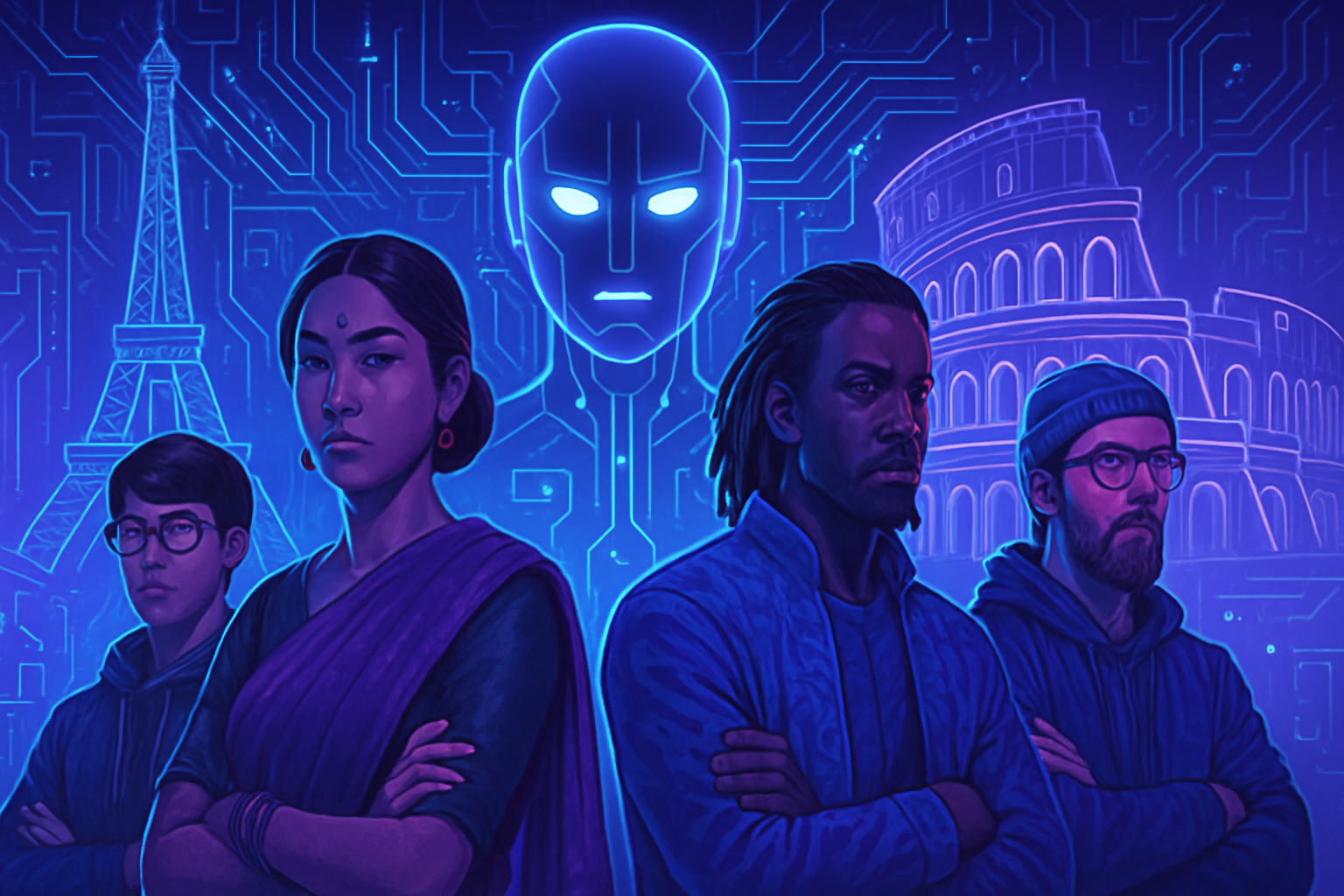Creators and artisans from different nations are rising against the AI Act, seen as a betrayal of European ambitions regarding copyright protection. The implementation of this legislation is provoking outrage and dissatisfaction, highlighting an unprecedented unified movement among artists and publishers. Their fundamental concerns shed light on the fragility of legislation in the face of technological advancements, while they denounce the risk of alienation of their work. This collective calls for a critical reassessment of the proposed measures, ensuring the future of European artistic creation by maintaining a balance between innovation and fundamental rights.
Unity of creators against the AI Act
Creators from around the world express their dissatisfaction with the AI Act, proclaiming it a betrayal of the ambitions displayed by the European Union. The coalition, which includes 38 major organizations, denounces the introduced regulation, stating that it does not respect intellectual property rights.
Deep concerns of rights holders
Performing artists, authors, and publishers express significant concerns about the implications of the AI Act for their sector. In a statement, these organizations clarify that the current regulation does not address the critical questions raised during the negotiation process. Frustration is mounting over the code of good practices outlined in the regulation, deemed insufficient to protect creators’ rights.
A missed opportunity for rights protection
The consensus among coalition members highlights that this is a missed opportunity to secure meaningful protections. The lack of concrete measures to counter the harmful effects of generative AI on original works worries creators. “This regulation does not deliver on its promises,” they regret, lamenting inaction regarding contemporary issues related to digital creation.
Expected economic and social impacts
Creators anticipate a deterioration in the quality of works produced due to lax legislation. The economic consequences could also be felt, particularly in the fields of artistic and editorial production. Organizations recommend a rapid reevaluation of the guidelines provided by the AI Act to ensure a fair and equitable environment for all rights holders.
Reactions on the international stage
The disillusionment felt by creators reverberates globally, drawing attention to the shortcomings of European regulation. The global artistic community watches this movement with heightened vigilance. Legal actions taken by entertainment giants such as Disney and Universal against the AI image creator Midjourney further illustrate the tensions surrounding copyright in the age of artificial intelligence. Read here.
Potential consequences for the advertising sector
The impact of AI on the advertising sector could prove revolutionary, but it also raises concerns. Industry leaders report on the transformations this could bring. Special attention must be paid to the methods of creation, targeting, and dissemination of campaigns. The need for strict regulation is emphasized to prevent abuses that may arise from overly lenient regulation on AI.Learn more here.
Repercussions on innovation and creativity
The ongoing legislative changes raise questions about the sustainability of innovation and creativity. Such an approach could favor the homogenization of works at the expense of artistic authenticity. Sector stakeholders call for a reshaping of strategies to ensure that the rights of creators remain at the heart of technological development. The absence of adequate measures risks restricting the diversity of ideas and creations in the market.
Call to action from creators
The organizations involved are calling for a general mobilization to reassess and redefine practices regarding AI regulation. Creators urge their peers to unite to demand significant changes to current policies. A shift in legislation could lead to a more protective framework favorable to creativity, essential for art in a world where AI is playing an increasing role. The ongoing debates on the impact of AI in various sectors, including businesses, should prompt critical reflections from industry stakeholders.Click here for more information.
Future perspectives and development
The current dynamics surrounding the AI Act raise many questions about the direction European legislation will take. With growing calls for regulatory changes, the stage is set for potentially significant shifts. The commitment to ensuring a potency for intellectual property rights in the face of the rise of technologies such as AI is more relevant than ever.
Frequently asked questions regarding the AI Act and creators
What are the main objectives of the European regulation on AI?
The regulation aims to regulate the use of artificial intelligence within the European Union, ensuring safety, protection of fundamental rights, and implementation of an ethical framework for AI technologies.
What are the main concerns of creators regarding the AI Act?
Creators express strong concern that the regulation does not adequately protect their intellectual property, particularly in light of the development of generative AI that could exploit their creations without consent or compensation.
Why have global organizations united against the AI Act?
These organizations believe that the regulation does not meet the needs for protecting creators’ rights and that it represents a missed opportunity to promote genuine defense of intellectual property in the digital age.
What impacts could the AI Act have on artists and authors?
The regulation could facilitate the use of their works by AI systems without their prior consent, making it more difficult for creators to monetize their work and maintain control over its use.
How are creators reacting to this legislation?
Creators have expressed their dissatisfaction through public statements and awareness campaigns to denounce what they perceive as a betrayal of European ambitions regarding copyright protection.
Are there alternative solutions proposed by creators?
Yes, several organizations are calling for a new legislative framework that would guarantee better protection of creators’ rights in relation to the use of AI technologies, emphasizing appropriate compensation mechanisms.
How will the enforcement of the AI Act affect future artistic creation?
Creators fear that the current legislation may hinder creativity and innovation, as it could deter artists from creating new works or using AI tools for fear of violating their rights.
What actions can creators take to defend their rights against the regulation?
Creators can organize into groups, join professional associations, and lobby legislative bodies to promote a regulatory framework that truly protects their intellectual property rights.






